
- Marketplace
- Posted
Retrokit tailors software platform for one-stop-shops
Retrokit, the Irish clean tech start-up whose software platform helps housing professionals to make evidence-based decisions for energy upgrade projects, has tailored its software for one-stop-shops managing retrofits under the national home energy upgrade programme.
This article was originally published in issue 41 of Passive House Plus magazine. Want immediate access to all back issues and exclusive extra content? Click here to subscribe for as little as €10, or click here to receive the next issue free of charge
“Retrokit is a cloud-based platform, and its core mission is to support the upskilling of energy renovation in housing,” said company founder and CEO Xavier Dubuisson. Retrokit creates a customised database with the baseline energy performance of dwellings – including energy use and expenditure, carbon savings and BER rating. This information can be viewed for multiple homes in a grouped project or zoomed in on for individual homes.
The software then models and compares a wide range of energy renovation scenarios, helping to decide on the best route to meeting the objectives of the client, whether these are based on budget, CO2 emissions, the health of the homes or fuel poverty targets.
“Our API can interrogate the national database and retrieve BER data for a particular dwelling, to get a baseline representation of its performance,” said Dubuisson. “It can then bring all of that into a home energy upgrade plan, which will tie in with the home energy assessment that will be carried out by the onestop shop. We already working with a number of one-stop-shops.”
Retrokit features a database of 56 different energy conservation measures that can be applied across the dwellings being analysed. It can model the resulting energy performance when different combinations of measures are applied, and judge them against key performance indicators such as energy consumption, carbon emissions and BER.
“We have worked with Xavier and his team in Retrokit over the past year to develop bespoke energy upgrade proposals for our customers based on actual BER data,” said John McMahon of leading retrofit contractor Energlaze.
“Retrokit have created a system that allows us to present customers with a fully costed and bespoke pathway to improve the comfort level and energy efficiency of a home. This is a real bonus for us as it delivers a plan based on hard facts that allows customers to understand the benefits of each potential step in the upgrade process. In addition, customers can clearly see where and how energy bills and the home’s carbon footprint can be reduced.” When it launched in 2020, Retrokit’s focus — and still one of its core markets — was social housing, as the software can enable housing managers to make critical retrofit decisions about large numbers of dwellings.
“It can also calculate the capital cost of implementing those measures,” Dubuisson said.
“It can generate quantities and apply a unit cost to those properties. In this way, we help housing stock managers to optimise their operations and answer questions such as, “how do I upgrade my building stock?”, and “how much is it going to cost me?”. It can model a large number of different options quickly, and help housing managers to make strategic decisions.”
“We’ve also combined the BER database with CSO data, to support the creation of masterplans for sustainable energy communities. We can select any area around Ireland and use Retrokit to create a model of the housing stock there, and create a masterplan for upgrading the housing stock. This makes it the perfect tool for project managers working under SEAI’s Sustainable Energy Communities programme.”
For more see www.retrokit.eu.
Related items
-
 Build Homes Better updates Isoquick certification to tackle brick support challenge
Build Homes Better updates Isoquick certification to tackle brick support challenge -
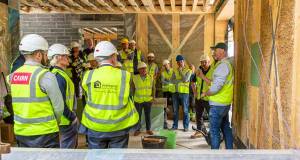 Ecological Building Systems expands UK and Irish straw panel construction with EcoCocon deal
Ecological Building Systems expands UK and Irish straw panel construction with EcoCocon deal -
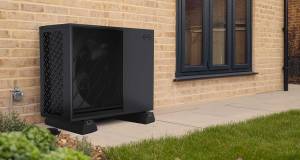 Grant’s Aerona R290: A next-gen heat pump designed for the Irish climate
Grant’s Aerona R290: A next-gen heat pump designed for the Irish climate -
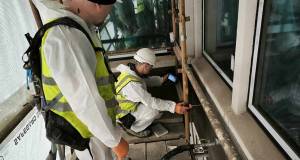 Historic Dublin building retrofitted with cutting edge insulation
Historic Dublin building retrofitted with cutting edge insulation -
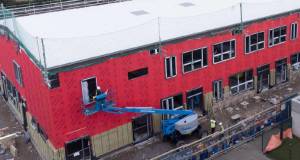 Proctor gains ground with Scottish passive schools
Proctor gains ground with Scottish passive schools -
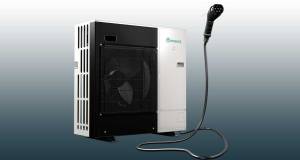 Heat pump and EV charger combo promises smart energy use
Heat pump and EV charger combo promises smart energy use

